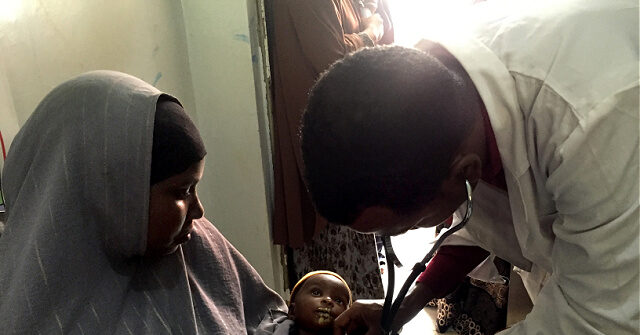Japan reported Thursday on Kyodo News that Tokyo has agreed to work with the World Health Organization (WHO) to create a new UN public health agency that will promote universal health coverage in developing countries.
“Japanese Prime Minister Fumio Kishida and WHO chief Tedros Adhanom Ghebreyesus decided to set up the organization in Japan during phone calls in May, and according to the sources, the organization is likely to coincide with the G-7 summit in Hiroshima in western Japan,” he said. aforementioned. Japanese News Agency, 11 August.
Kyodo News has outlined the upcoming G7 (G7) member states summit scheduled for May 2023 in Hiroshima, Japan. The G7 is an intergovernmental political forum composed of the world’s leading economies. Its members are Japan, Canada, France, Germany, Italy, the United Kingdom and the United States.
On Thursday, Kyodo News cited additional information from anonymous sources at the Japanese Ministry of Foreign Affairs about Tokyo and WHO’s plan for allegedly “focusing on strengthening health systems” in poor countries.
Sources said Japan is expected to strengthen its presence by giving social security expertise to a new organization under the auspices of WHO and tasked with promoting universal health coverage.
In 2012, WHO passed a resolution on universal health coverage, as at least half of the world’s population does not have access to basic health care.
The new organization will also raise awareness of universal health insurance and establish a framework to prevent the spread of infectious diseases, including coronavirus.
WHO has led efforts to promote universal health coverage in the Eastern Mediterranean region, which previously includes 21 WHO Member States and extends beyond the immediate environment of the sea.
Detailing some of the initiatives it took to support the initiative in 2017, the agency wrote:
Technical cooperation with Egypt facilitated the passage of a historically comprehensive social health insurance law by providing more public financing for health services. Support was also provided to Kuwait to reform its health financing system and integrate its health financing strategy into the country’s national strategic health plan.
Special support was provided to the Islamic Republic of Iran and Sudan to strengthen the strategic purchasing function of health insurers. Particular attention was paid to the development of aid packages for general health insurance. […]
Joint efforts with Sudan’s Federal Ministry of Health and other development partners resulted in the approval of a funding proposal to support governance reforms in the National Health Insurance Fund. Collaboration with the United Nations Development Program (UNDP) continued to tackle corruption in the healthcare system.
WHO also said it is working with “GAVI, the Vaccine Alliance and the Global Fund” to increase “vaccination coverage” and “improve control” in Sudan. […] HIV/AIDS, tuberculosis and malaria”.
GAVI, officially known as the Gavi Vaccine Alliance, supports the introduction of vaccination in developing countries. The organization considers itself a “public-private” global health partnership.
“GAVI’s impact builds on the strengths of its key partners, the World Health Organization, UNICEF, the World Bank and the Bill & Melinda Gates Foundation, and plays a critical role in empowering Primary Health Care (PHC) that brings us closer to Sustainability. Development. Development Goal (SDG) of universal health insurance (UHC) to ensure no one is left behind.
The United Nations set the “Sustainable Development Goal (SDG) of Universal Health Coverage (UHC)” in 2015, “based on the principle that all individuals and communities should have access to quality primary health care services without financial hardship”.
Source: Breitbart
